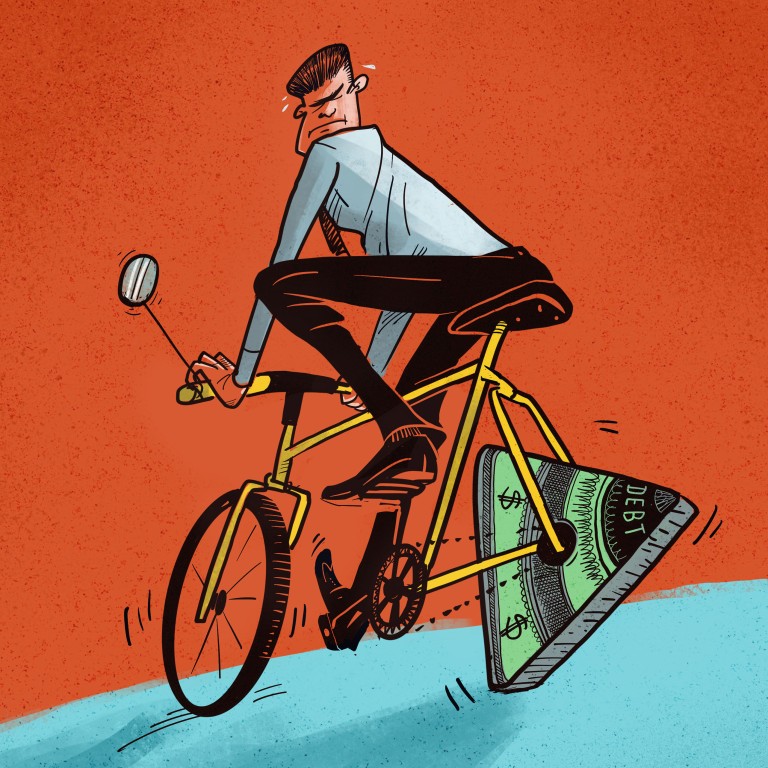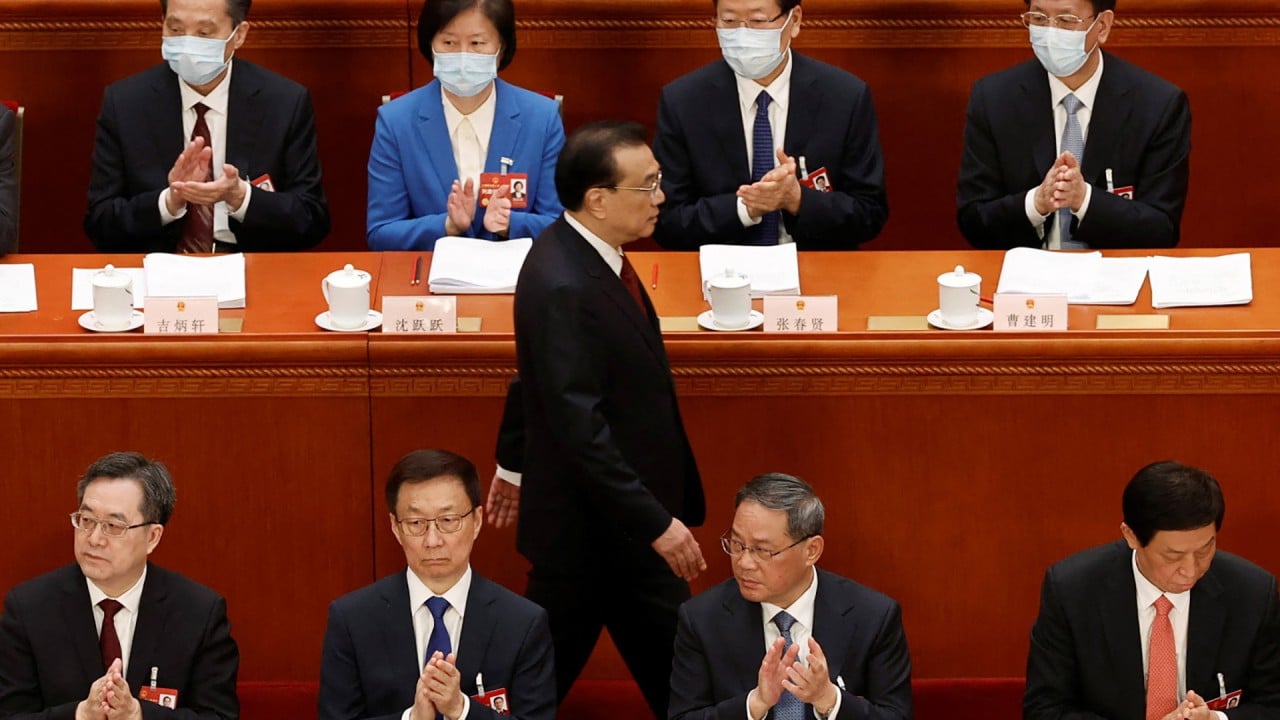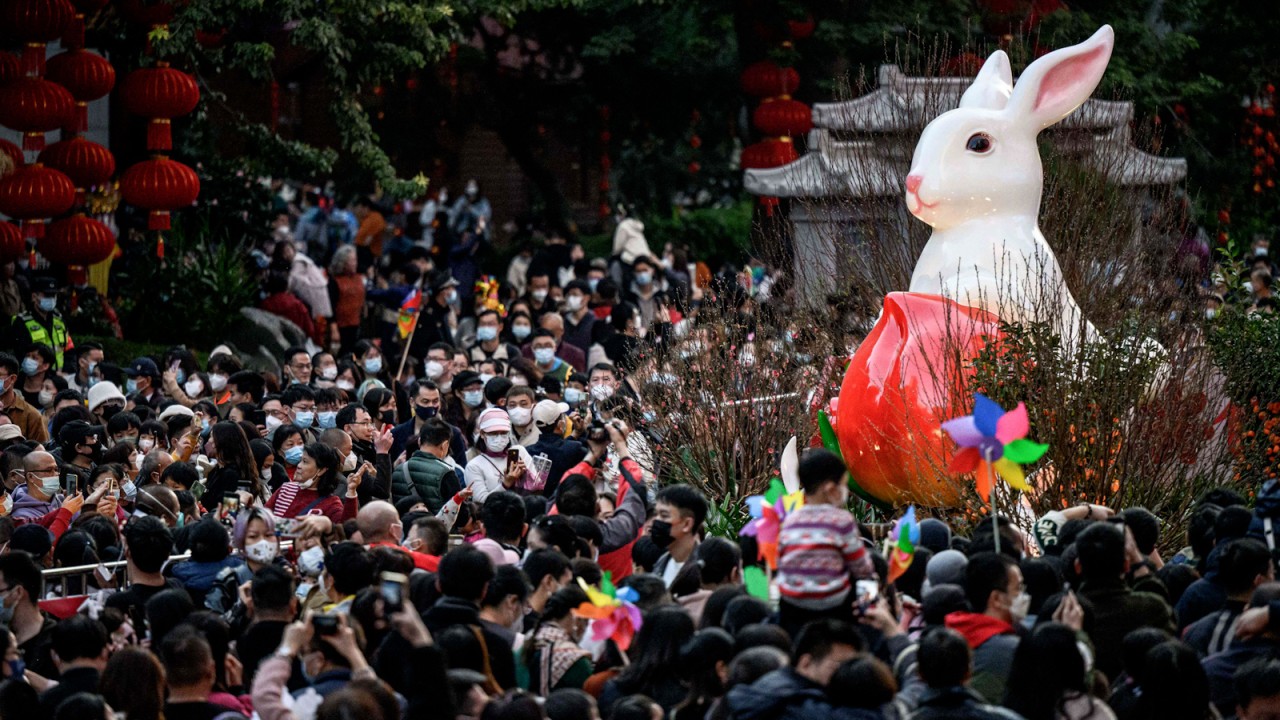
Triangular debt troubles China’s SMEs once more as economy’s post-Covid recovery struggles to gain traction
- Politburo pledged last month to ‘fundamentally address the arrears that have confronted enterprises’
- Overdue payments totalled more than US$967.8 billion by the middle of last year, according to BOC Research Institute report
Triangular debt, a problem that first troubled China’s economy over three decades ago, has resurfaced as the country’s post-pandemic recovery is challenged by weak demand at home and abroad.
Triangular debt arises when delayed or partial payments leave companies owing money to each other and to their banks. It discourages production and investment and the resulting liabilities or bad loans can put a damper on growth and exacerbate financial risks.
In the early 1990s, following a bout of monetary tightening designed to rein in inflation, triangular debt affected a third of bank loans.
The economic disarray pushed Beijing to take resolute measures to address the problem, with then vice-premier Zhu Rongji injecting more than 50 billion yuan (US$7 billion) into a number of fixed-asset investment projects in June 1991.
After launching a campaign last year to address overdue payments to small- and medium-sized enterprises (SMEs), Beijing underscored the importance of the task last month in its formal assessment of the economy’s first-quarter performance.
Firms are trying their best to maintain their own operations by delaying payments and keeping more cash in hand
With private businesses, the backbone of China’s economy, struggling, the Politburo – the Communist Party’s top policymaking body – pledged to “fundamentally address the arrears that have confronted enterprises”.
Liu Ge, who runs an industrial printing company in Guangdong province, said the problem of overdue payments had been getting worse by the year and the insufficient supply of orders faced by most SMEs this year would definitely make the situation worse.
“For the same supplier, the payment term is extended by an average of about 20 days compared to last year,” he said. “But, for the domestic market, it is impossible for a company to avoid the problem of extension of payment terms, unless you stop doing business.
“I think the fundamental reason is that the profitability of private firms, especially small businesses like us, is getting lower and lower. Firms are trying their best to maintain their own operations by delaying payments and keeping more cash in hand.”
Private sector fixed-asset investment grew just 0.6 per cent year on year in the first quarter of the year, while state sector investment jumped 10.0 per cent, official data showed.
Profits at private industrial firms fell 19.9 per cent year on year in the first two months of the year and weakened further in March, with the first-quarter figure down 23 per cent.
A survey by MS Weekly, a magazine run by the party mouthpiece People’s Daily, found that liquidity problems caused by prolonged delays in payment were one of the three most pressing issues faced by private businesses in Ningbo, a city in Zhejiang province in eastern China’s prosperous Yangtze River Delta region.
Private companies are widely concerned that the term of receivable funds has been prolonged, leading to insufficient liquidity
The other were a lack of orders, leading to year-on-year declines in revenues and profits, and a weak willingness to invest.
The survey polled 100 private enterprises in Ningbo, where the private sector employs more than 4.2 million people, accounting for 80 per cent of jobs.
About 86 per cent of the businesses said they were struggling to get paid, with 36 per cent having waited more than six months and “facing big operational pressure”, an article in the magazine said in March.
“Private companies are widely concerned that the term of receivable funds has been prolonged, leading to insufficient liquidity,” it said. “Some private companies have to suffer protracted delays in payment of arrears, or difficulties getting repaid.”
Xu Yuning, a member of China’s top political advisory body, the Chinese People’s Political Consultative Conference member, told MS Weekly that local governments should take concrete measures and set a deadline for government entities and state-owned enterprises to pay to private SMEs.
The article said that even some private enterprises in profitable situations had difficulties repaying their suppliers, who were, in turn, unable to pay their own suppliers, causing the triangular debt problem to spread to a large number of businesses.
In another article, published in Study Times, the journal of the Central Party School, in February, Wang Dongjing, a member of the top legislature’s financial and economic committee, said there were two layers of “debt chains” in China.
“In the first layer, local governments owe debts to banks and enterprises, and enterprises owe debts to banks; in the second layer, state-owned enterprises owe debts to banks and private enterprises, and private enterprises owe each other,” he wrote.
China manufacturing PMI hits lowest level since post-Covid reopening
Wang said the order of debt repayment by local governments should be private enterprises first, then state-owned enterprises, then banks; while the order of debt repayment by state-owned enterprises should be banks first, then private enterprises.
His article included two examples of triangular debts caused by local governments.
Wang said the owner of a private business in southern China had told him that he was owed 30 million yuan (US$4.33 million) by the government of a county in western China, but it had only repaid 1 million yuan by the end of last year, meaning he had no choice but to owe money to his suppliers.
In the other example, a private enterprise with a good operating performance saw its cash flow severed last summer because it was owed money by its local government and had to lay off a large number of employees and suspend its operation.
The real estate developers have repaid us some cash, but most of the rest still require us to accept some of their presale dwellings as payment
Wang said an enterprise going bankrupt would have two consequences: mass lay-offs and increased bank risks. That meant that when the financial resources of a local government were insufficient to meet all its obligations, enterprises should be placed ahead of banks for repayment, and private enterprises should be placed ahead of state-owned ones.
Liu Yun, a property decorator from Zhuhai, Guangdong, said the overall environment seemed a bit better this year, but payment terms had yet to shorten significantly. His company was owed tens of millions of yuan late last year by clients who included some state-owned real estate developers.
“There are more construction projects than last year, mainly municipal engineering works, and the cost of construction is generally the same as last year,” he said.
“But small- and medium-sized subcontractors like us hardly win bids.
“The real estate developers have repaid us some cash, but most of the rest still require us to accept some of their presale dwellings as payment. That means we will lose at least 10 per cent of what we budgeted for, due to China’s property market slump.”
Chinese authorities approve new guidelines for private firms
Poll results released in March by the Economic Observer newspaper and the Guangdong Council for the Development and Promotion of Small and Medium Enterprises showed that over 83 per cent of the 108 SMEs surveyed had struggled to get paid for goods sold in the fourth quarter of last year, and 43.44 per cent said they expected their accounts receivable period in the first quarter of the year to be longer that it was last year.
The percentage of enterprises with an average of 60 days in accounts receivable rose to 68 per cent in the fourth quarter of last year from 61.96 per cent in the previous quarter, and the percentage of enterprises with an average of 180 days or more in accounts receivable rose to 12.22 per cent from 10.87 per cent.
Nationwide, overdue payments amounted to more than 6.7 trillion yuan (US$967.8 billion) by the middle of last year, causing huge difficulties for China’s SMEs, the BOC Research Institute said in a report released in August. The total was equivalent to about 3.2 per cent of China’s outstanding loans at that time.
Many companies could not sell what they produced last year, leading to an increase in inventory, which in turn led to mutual arrears between companies, eventually forming the so-called triangular debts
“Many companies could not sell what they produced last year, leading to an increase in inventory, which in turn led to mutual arrears between companies, eventually forming the so-called triangular debts,” Yao Jingyuan, a special researcher at the Counsellors’ Office of the State Council and a former chief economist with the National Bureau of Statistics, said in Guangzhou, Guangdong’s provincial capital, in March.
Weak external demand could add to the problems faced by China’s SMEs.
Peng Biao, an organiser of industrial exhibitions who closely monitors supply chains, said fewer orders being placed by buyers from the United States and Europe would make payment term problems more serious, because “foreign firms usually have good payment behaviour”.
Some Chinese businesses have come up with ideas to cope with the problem.
“We have developed some software programs targeting the payback issues, by which we can decide how long the production line would be out of service depending on the customer’s payment progress,” said Qiu Xiaohua, director of the trade department at GSK CNC Equipment, which makes industrial robots and other equipment for factories.
Liu Ge said some of his friends had offered his printing company a helping hand.
“Some of my friends are interested in funding me in bargaining with my suppliers, like paying cash for a lower price which is equivalent to a discount of between 5 and 10 per cent,” he said.
“This is far more rewarding for them than taking bank interest.”



